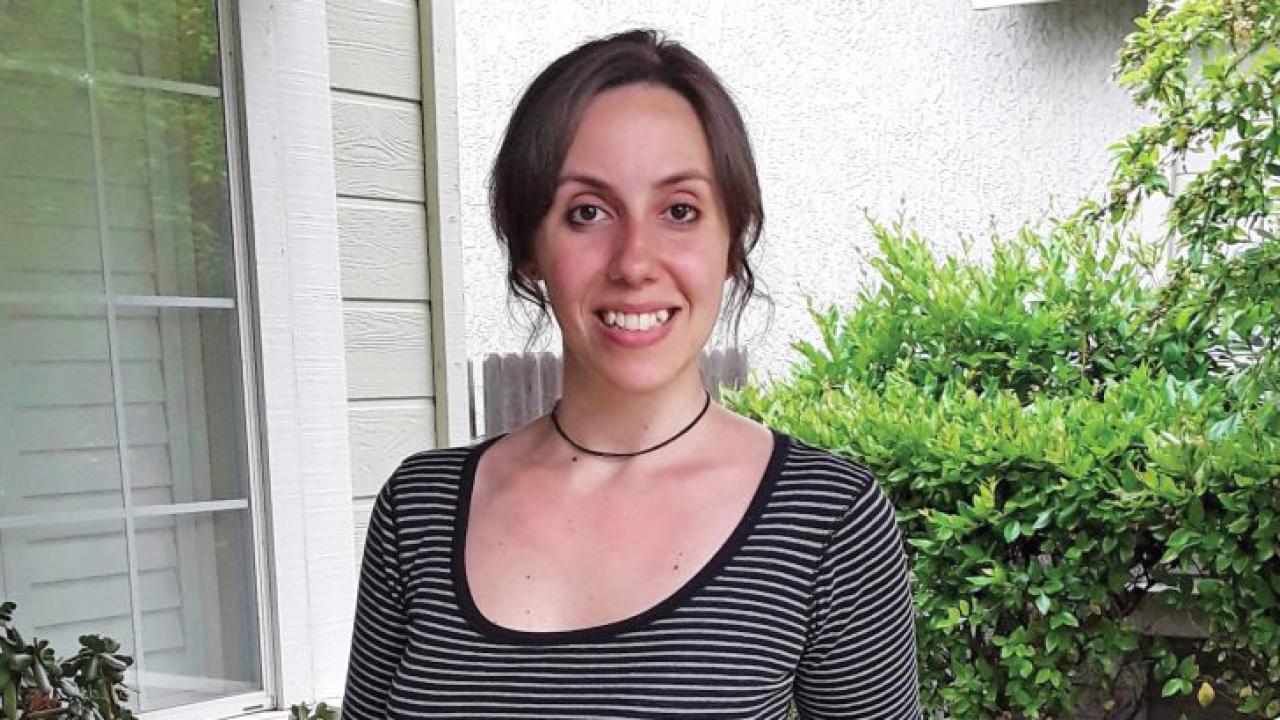
PEGS21: Reducing Barriers for First-Generation Grad Students in Engineering
Pictured: Shahin Shams, first-year biomedical engineering graduate student.
The Preparing Engineering Graduate Students for the 21st Century (PEGS21) project at UC Davis seeks to support first generation students as they advance from undergraduate to graduate school in pursuit of their career dreams.
In 2016, the program received a five-year, $1M grant from the National Science Foundation to improve the support of students to help students overcome barriers and promote the enrollment, persistence and graduation of low-income, academically talented, underrepresented students in engineering graduate programs.
Studies show first generation students face unique challenges in the progression through graduate education. Traditionally, first-year graduate students in engineering have scant resources dedicated to their mentoring and socialization. PEGS21 seeks to reduce the barriers first-generation students face by providing personalized mentoring, guidance and support, along with a $10,000 scholarship to first-generation scholars in their first year of engineering graduate study.
First-year biomedical engineering graduate student Shahin Shams is a 2018 PEGS21 participant, working with biomedical engineering professor Eduardo Silva on polymeric biomaterials for gene and cell therapies.
“The program takes people that did very well in an undergraduate setting, and gives them more resources and an outlet to ask the questions that they need so they can succeed as best as they can,” Shams says. “Even though I went here as an undergrad, there’s so much stuff I didn’t know.”
Shams’ family came to California in the early 1980s; her mother from the economically depressed suburbs of Detroit and her father from Iran fleeing the Iranian Revolution. As a child, she peppered her father with questions about math and science, who helped develop the building blocks of her interest in engineering. Her mother “was much more focused on nature,” Shams says. “We’d go on nature walks and she’d be like, ‘Oh, there’s a caterpillar.’ And then she would explain what a caterpillar is and how it transitions into a butterfly. She would do that with everything. And I just thought that there was such a dynamic state around us that I wanted to go and explore it for myself.”
In 2015, as a junior at UC Davis, Shams came up with the idea to write children’s books to explain challenging concepts in engineering. Biomedical engineering professor Kent Leach told Shams “if you can explain something to a six-year-old, that means you fully understand it.”
She came up with the idea of passing around cookies as a way to explain diffusion.
“If you are passing cookies around to share, it goes from a high concentration of cookies to a low concentration, so that everybody gets one. I thought this was a unique way to show that engineering isn’t just all mathematics, there’s a human connection.” This project further inspired her to writing children’s books explaining STEM topics to elementary schoolers—with three published explaining what vaccines are, what blood is, and what allergies are. Now as a graduate student, Shams is planning on developing additional children’s books related to asthma and diabetes, two diseases affecting an increasingly large proportion of the U.S. population.
After earning her Ph.D., Shams hopes to attend law school, with the eventual goal of becoming a patent lawyer. She encourages others to think beyond their comfort zones: “Ask as many questions as possible, seek out any teacher that you have and ask them as many questions as you can. I think I would’ve had a much more solid baseline if I had just talked to my teachers a little bit more because they are there to help. They really want to see you succeed as much as you want to succeed.”
About Graduate Studies
Graduate Studies at UC Davis includes over 100 dynamic degree programs and a diverse and interactive student body from around the world. Known for our state-of-the-art research facilities, productive laboratories and progressive spirit – UC Davis offers collaborative and interdisciplinary curricula through graduate groups and designated emphasis options, bringing students and faculty of different academic disciplines together to address real-world challenges.
UC Davis graduate students and postdoctoral scholars become leaders in their fields: researchers, teachers, politicians, mentors and entrepreneurs. They go on to guide, define and impact change within our global community.
For information on Graduate Studies’ current strategic initiatives, visit the Graduate Studies strategic plan page.
